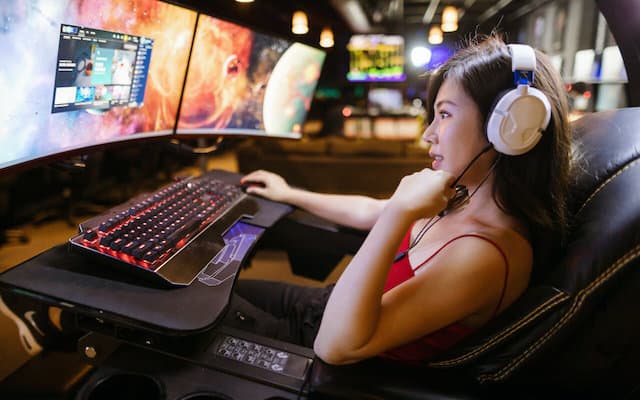In the ever-evolving landscape of digital entertainment, online gaming stands as a vibrant and dynamic domain, constantly pushing the boundaries of what’s possible. What was once a solitary activity confined to a single-player experience has blossomed into a global phenomenon, fostering communities, competitions, and connections across the globe https://amp.yourpalalcreative.com. The online gaming experience has transcended mere gameplay; it has become a cultural nexus, a realm where individuals from diverse backgrounds converge to share in the thrill of virtual adventures.
At the heart of this transformation lies the concept of immersion. Gone are the days of two-dimensional, static gameplay. Today’s online gaming experience is defined by its ability to transport players into richly detailed, interactive worlds. From sprawling open-world environments to intricately designed multiplayer arenas, modern games offer a level of immersion that was once unimaginable. High-definition graphics, realistic physics engines, and immersive sound design combine to create an experience that engages the senses and captivates the imagination.
But immersion is not solely a product of technological advancement; it is also shaped by the social dynamics of online gaming communities. Online multiplayer platforms have transformed gaming from a solitary pastime into a social experience, enabling players to connect, collaborate, and compete with others from around the world. Whether teaming up with friends to tackle a shared objective or facing off against rivals in high-stakes competitions, the social dimension of online gaming adds a layer of depth and excitement that enhances the overall experience.
Yet, as the online gaming landscape continues to evolve, developers are faced with the challenge of balancing innovation with inclusivity. While cutting-edge graphics and gameplay mechanics can enhance immersion for some players, they may also present barriers to entry for others. Recognizing this, many developers are striving to make their games more accessible and inclusive, ensuring that players of all skill levels and backgrounds can enjoy the experience.
One approach to achieving this is through the personalization of gameplay experiences. By allowing players to customize their gaming experience to suit their preferences and abilities, developers can create a more inclusive environment that caters to a diverse audience. This might involve offering a range of difficulty settings, customizable controls, or options for adjusting visual and auditory settings to accommodate different needs.
Moreover, the rise of artificial intelligence and machine learning technologies presents exciting opportunities for enhancing the online gaming experience through personalized content and gameplay experiences. By analyzing player behavior and preferences, AI-driven systems can dynamically adjust game parameters in real-time, providing a tailored experience that adapts to the individual player’s skill level, play style, and preferences. From dynamically adjusting difficulty levels to generating personalized content based on player interests, AI has the potential to revolutionize the way we experience and interact with games online.
However, as we embrace these innovations, it’s essential to remain mindful of the ethical implications of AI-driven personalization in gaming. Developers must prioritize transparency, consent, and user control to ensure that personalized gaming experiences respect players’ privacy and autonomy. Additionally, efforts should be made to mitigate the risk of algorithmic bias and ensure that AI-driven systems promote fairness and inclusivity.
